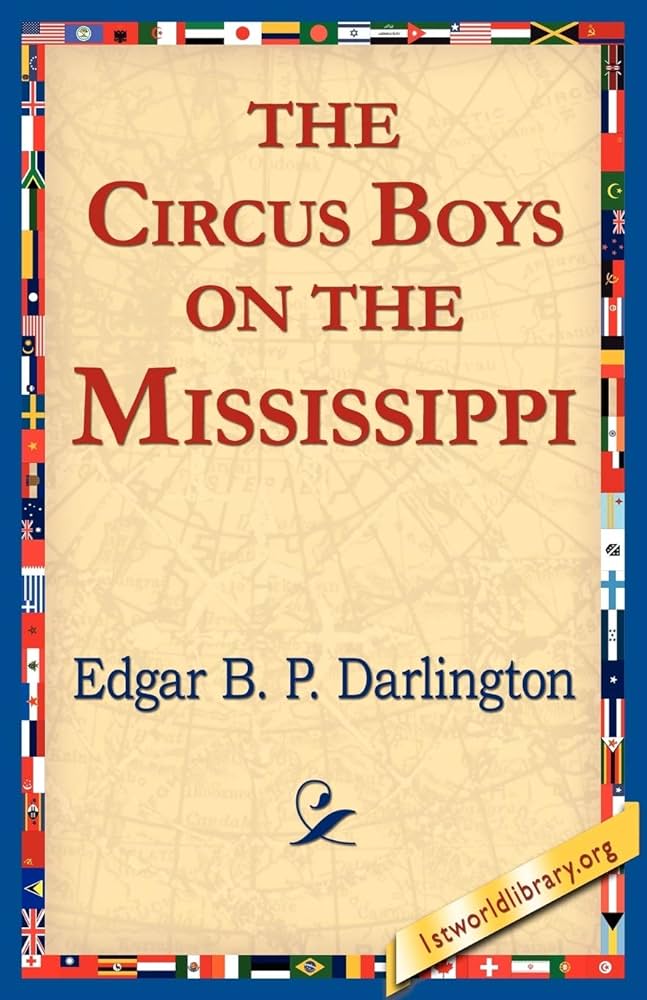Chapter XVII — The Circus Boys on the Mississippi
byChapter XVII opens with Phil Forrest caught in the shadows just beyond the circus grounds, his instincts sharpened by a rising sense of danger. Two figures move with stealth, their intent unclear but certainly suspicious. Phil, not one to back down, chooses to follow at a safe distance, relying on agility rather than confrontation. The night air thickens with tension as he maneuvers around wagons and tents, trying to stay unnoticed. A quick decision sends him dashing through a narrow gap, creating just enough distance to turn the tables. Rather than continue fleeing, he circles back to investigate one of the figures—Diaz, a performer whose behavior has often raised quiet eyebrows. This pursuit isn’t about proving a hunch; it’s about confirming a fear that has slowly taken shape.
Back aboard the showboat, Phil scans the corridors for any sign of Diaz. His arrival is calm, but his thoughts are in turmoil. Confronting Diaz yields no confessions, only denial and confusion. Diaz insists he’s been on board for hours, but something in his tone doesn’t sit right. Phil finds himself questioning his memory, replaying moments from the chase. A later conversation with Teddy confirms Diaz’s alibi—Teddy recalls seeing him on the boat much earlier. The realization stops Phil short. Could he have followed the wrong man? Or is Diaz clever enough to manipulate time and perception? The uncertainty hangs heavy in the room.
Phil’s focus turns outward as the boat approaches its next stop. He positions himself near the ramp, watching each crew member and performer exit. Every glance, every pause becomes a clue in his private investigation. He’s not merely looking for guilt—he’s searching for cracks in a mask. The fear isn’t just that someone may be causing trouble, but that it might be someone he trusts. His loyalty to the circus drives his vigilance, reminding him of past threats that nearly tore their group apart. The safety of the show and its people means more to him than applause or praise.
Later, Phil finds a quiet moment with Mr. Sparling. The discussion begins softly, with questions instead of accusations. Phil recounts the chase and the unresolved suspicion surrounding Diaz. Sparling listens intently, balancing experience with concern. He acknowledges Phil’s unease and the history of sabotage that continues to shadow their journey. Still, he urges caution—suspicions, once voiced, cannot be taken back. He proposes watching rather than confronting for now, hoping to gather undeniable proof. For both men, the idea of betrayal from within weighs heavily.
The conversation shifts from logistics to trust. Mr. Sparling reflects on the nature of circus life—a blend of performance and reality, where illusion is both a craft and a shield. He reminds Phil that those who live on the move often carry secrets, not always sinister but sometimes dangerous. Phil nods, absorbing the wisdom. Even among family, caution must walk hand in hand with loyalty. That balance defines the traveling life: trusting enough to perform together, cautious enough to survive.
Outside, the sun begins to rise, casting long streaks of light on the muddy lot. Phil, restless but resolute, walks the perimeter. Nothing about the place feels different, yet everything has changed. The show will go on, as it always does. But behind the bright colors and joyful music, a quiet watchfulness now lingers. Phil’s suspicion hasn’t faded—it’s simply been tucked away, like a blade under a sleeve, ready for when the time is right. In his heart, the show is worth protecting at all costs.
These events highlight how even moments between performances can be filled with drama, just as compelling as what happens inside the big top. The circus isn’t merely entertainment—it’s a community, a mobile village built on trust, rhythm, and shared purpose. As Phil continues his quiet investigation, the reader is reminded that loyalty is tested not in comfort but in conflict. This chapter deepens our understanding of the characters, offering a window into the challenges of life behind the scenes, where danger often hides behind a smile and suspicion is a performance of its own.

